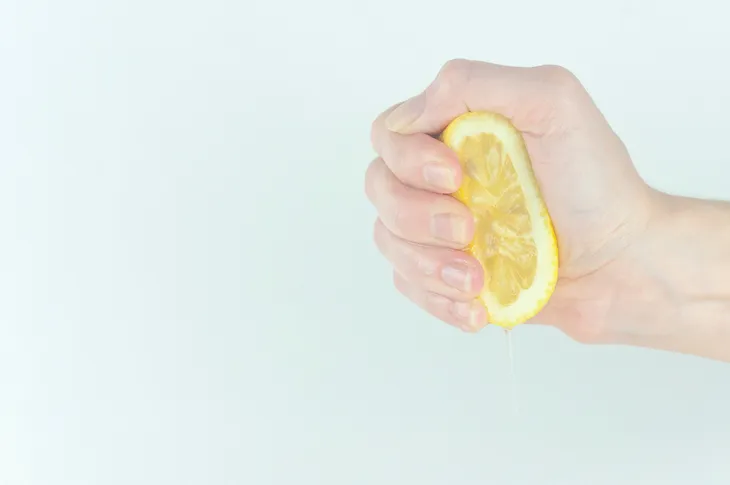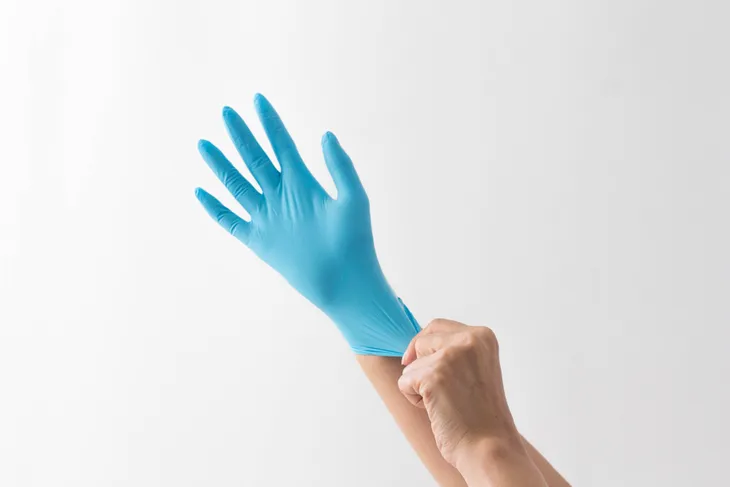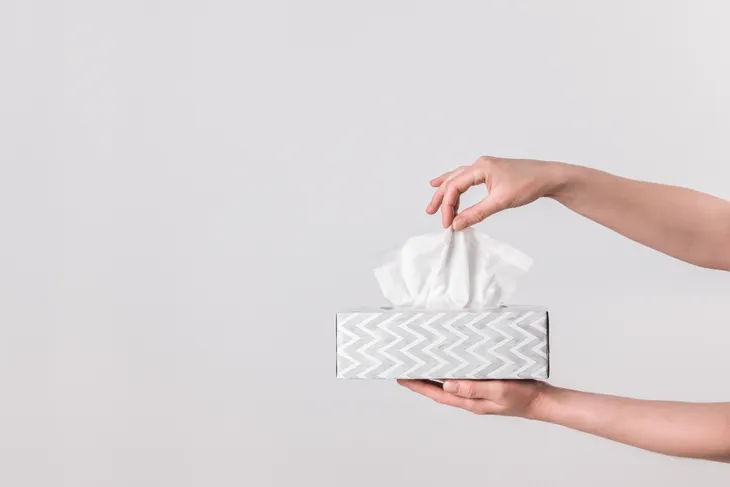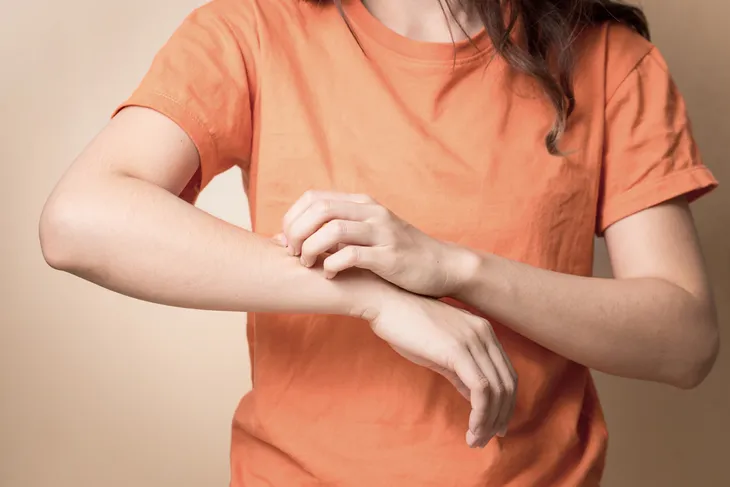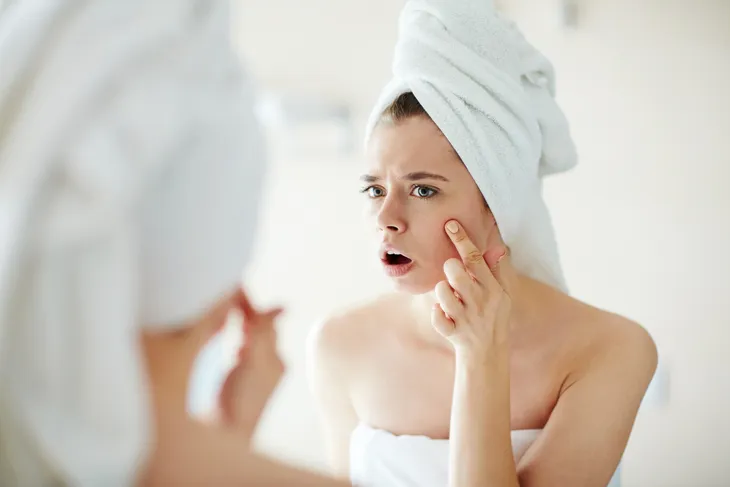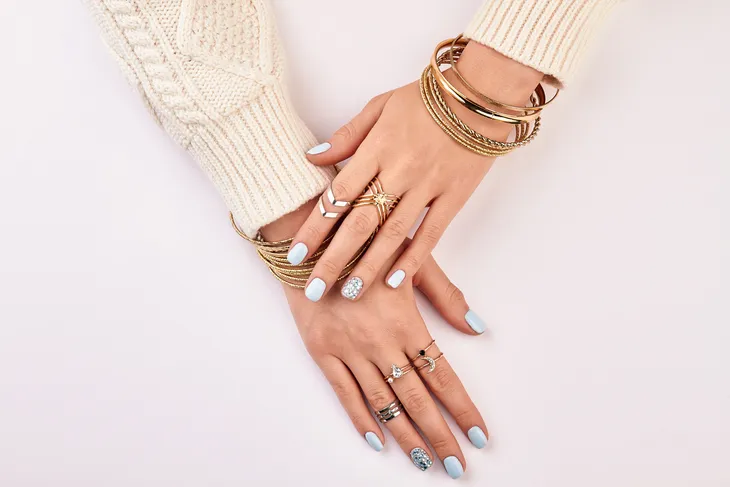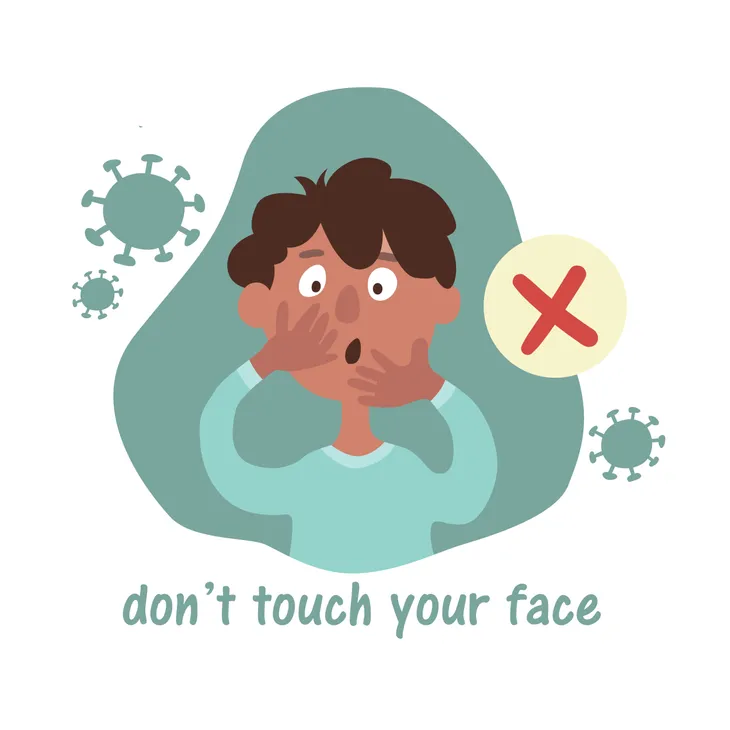When it comes to things that people do to pass the time or when they’re nervous, face-touching ranks right up there. But unfortunately, it also ranks high as a way to spread germs from your hands into your body where they can manifest into an illness. One study showed that medical students at the University of New South Wales touched their faces an average of 23 times per hour, with almost half of those touches involving a mucous membrane.
Whether it’s conscious or not, here are some ways to help avoid touching your facial features as part of an overall hygiene strategy.
Use Some Scents
While you may not even be looking at your hands when you touch your face, your nose can’t ignore a strong scent. That’s why Well+Good.com suggests applying something smelly to your hands to cue your brain that you’re touching your face, even if your eyes aren’t interested.
It can be something pleasant such as a scented lotion or perfume, strong enough to get your attention before you make contact, it notes. A scented soap could also work, and help remove germs from your hands in the first place.
Keep Your Hands Busy
When you’re not typing away on your phone, your hands are free to roam – and they will often make their way to your face. However, Healthline says that one of the keys to avoid face-touching is to keep them occupied in other ways.
For example, you may absentmindedly touch your nose or eyes when you’re binge-watching your favorite Netflix show. So add another activity into your TV-watching such as folding clothes or sorting through mail, or keep an object in your hand to remind you, it notes. (Suggestions from around the web include a stress ball, pen, fidget spinner, or even a string of chakra beads. How about taking up knitting?)
Wear Gloves
The jury is out on whether wearing gloves in public to help prevent the spread of germs is effective (some doctors actually say they’re problematic, because gloves are also susceptible to picking up germs that can then be transferred to your mucous membranes).
However, they can be an effective reminder that you’re touching your face (due to their texture), notes Healthline. The source suggests removing the gloves when you get to your destination – and that wearing them at home can also be an effective way to break the cycle of face-touching.
Carry Tissues
It’s probably a good idea to carry tissues when you leave the house, especially if you suffer from seasonal allergies. However, tissues can also be your friends when it comes to avoiding contact with your face with your fingers.
Good Housekeeping notes to use a clean tissue to soothe a facial itch, remove blemishes or to “smooth out your eyebrows,” but you should also make sure you’ve washed your hands first, it adds. As an added tip for home, make sure you have boxes of tissue in rooms you most commonly use.
Use ‘Competing Behaviors’
Face-touching is generally a habit, and like any habit, it can be broken says Health.com (although it acknowledges this is easier said than done). However, the source talks about using a “competing behavior” to break free from the cycle.
For example, instead of picking your nose or adjusting your eyelashes (our own examples), you could direct your hands to a less threatening area of your body such as your arm, it suggests. However, in order to turn to a competing behavior, you’ll have to recognize the urge to touch your face before you do it.
Treat Underlying Causes
Perhaps you have a skin condition such as acne or eczema that causes you to constantly reach for your face. However, while it may be soothing to scratch it, you should seek medical treatment to address these problems so that you’re not so tempted to reach for your face, says Good Housekeeping.
The added bonus of this not mentioned by the source is that you might be able to reduce or eliminate a skin issue (including a scar) that is causing you discomfort or making you feel self-conscious. Meanwhile, anxiety and stress may cause behaviors such as nail-biting, so those triggers should be addressed as well.
Provide a Cover-Up
Good Housekeeping suggests placing a bandage or some Vaseline in places on your face that are a “particular problem area,” for example if they are itching constantly. The source notes this will not only protect the skin from picking at it, but it will also serve as a reminder barrier.
Of course, if wearing a bandage or cream on your face in public is a problem, you could always wear a mask covering your mouth and nose to eliminate a lot of the surface area where you’d normally touch.
Use Jingly Sounds
Well+Good.com explains that you should “take a cue from your cat” when it comes to avoiding touching your face. That doesn’t just mean napping indoors all day. What it’s referring to is the bell that cat owners tie to their collars in order to hear them coming and going.
You can do the same for yourself – but it doesn’t have to be a collar (unless you’re into that kind of style.) Instead, it notes, you can wear a jingly bracelet to cue your brain when your fingers are coming in for a landing on your nose or mouth.
Provide Reminders To Yourself
You may have tried all of these techniques, but it doesn’t hurt to have some help in the form of reminders, says SELF. For example, you could put a sticky note on your desktop computer that says “DON’T TOUCH YOUR FACE” or something similar while you write your work report from home.
If you’re more of a mobile device person, then you could set reminders on your phone at regular intervals to remind you not to touch your face while you’re out and about. Or, you could ask a friend or family member to give you a heads up when you’re touching your face (but admittedly that may get annoying).

